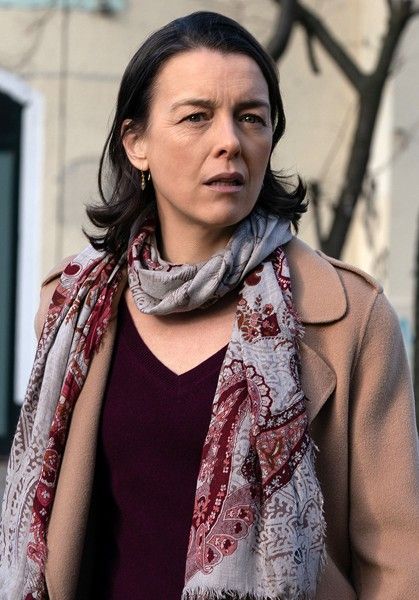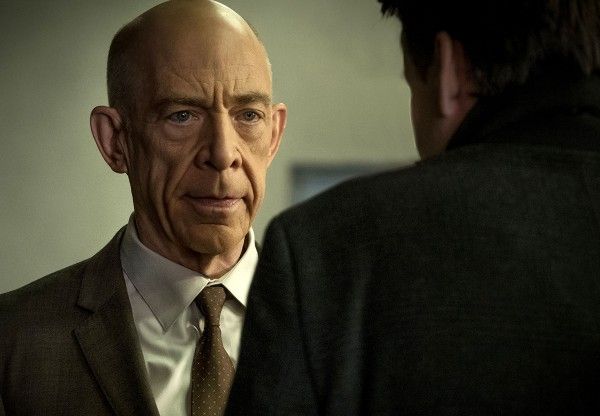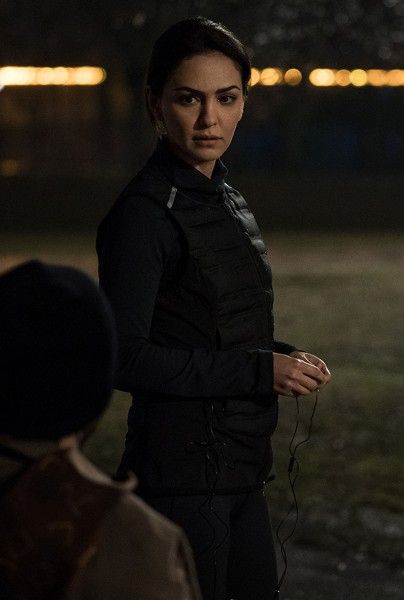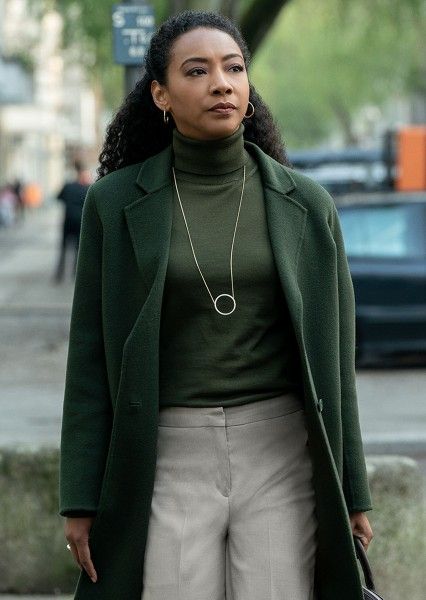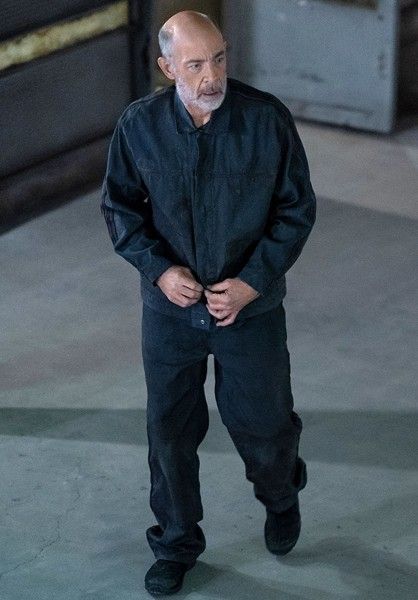Because 2018 has been The Longest Year, the excellent Starz series Counterpart is somehow back for Season 2 less than 12 months after Season 1 debuted. While other high-profile, prestige-y series like Westworld, Atlanta, or even Game of Thrones have taken exceptionally long breaks between seasons, Counterpart wasted no time in capitalizing on its early success by almost immediately (in TV terms) delivering a new season.
The first three episodes of the new 10 episode season are mostly building blocks for its twisted spy game, which makes it difficult to review. But for those who may not remember exactly how Season 1 ended (like I said, it’s been a long year), the series returns with enough exposition to organically remind you of everything without feeling like a rehash. And that’s important, because Counterpart is a complicated show that is poised to get even more so this time around.
Season 2 begins, in some ways, as an inversion to the first. Our Howard Silk (J.K. Simmons) is now trapped in the other world after the doors between these two realities was closed, while his doppleganger or “other” (as they are called in the series), Howard Prime (also Simmons) is taking over his life. Howard’s beloved wife Emily (Olivia Williams) is out of her coma and feeling like the world is slightly uncanny, as Howard Prime pretends to be her Howard. And in the other world, Howard Prime’s ex-wife Emily Prime (also Williams) has become fond of this different Howard, working to free him from his imprisonment.
As if that weren’t all mind-boggling enough, there are several new “others” introduced this year to mix things up even more. And yet, it all plays into the show’s meta themes about how our lives might be different if we had made different choices. There are some literal questions about doppelgangers explored when certain operatives are tasked with killing their others (are they really killing themselves?), while some watch themselves have sex or comfort themselves in ways only they, of course, know how. But more than anything it’s a question of rediscovering yourself and exploring whether you can ever really start over, and if so, will you really make different choices?
This plays out the most clearly in Emily’s story, as she attempts to regain her speech and memories in the wake of her coma. The more she learns about her pre-coma self, the less she likes it, feeling especially alienated from (as she describes it) this woman she hardly knows. She’s a woman that few seem to really know, and even more is revealed in Season 2 about her travels to the other side and the schemes (and affairs) she had going in both realms. Like Simmons in the first season, Williams imbues her characters with a potent combination of strength and vulnerability. Both are working to unlock a puzzle about who Emily is and what role she plays in the grander scheme, and yet both feel completely distinct and are utterly compelling. That focus on Emily more so than Howard to start the new season could have seemed, on paper, like a mistake, but it’s a wonderful shift that makes complete sense: She has always been the lynchpin, and Williams handles her duel roles with aplomb.
The relationships among the quartet of the Howards and Emilys are one thing, but Counterpart also explores other pairs in similarly sharp, complicated ways. Now that Peter Quayle (Harry Lloyd) is aware of who is wife Clare (Nazanin Boniadi) really is — that is, someone from "their" side who killed her other and inserted herself in his life to infiltrate his work — things between them have taken on a new level of tension. They have reached an accord where they aren’t trying to kill each other anymore (seemingly), but both face extraordinary challenges in keeping this ruse going even just between them, as they both spy and conspire against one another. All of this is augmented by an external threat as well, with the arrival of Naya Temple (Betty Gabriel), a former FBI agent who is exceptional at identifying and catching spies. (And to the show and Gabriel’s credit, Naya feels like she’s always been a part of this world rather than an interloper who is meant to shake things up).
Still, with so much happening, these early Counterpart episodes can feel a little slow and a little dense as they continue to add layers to an already twisted tale (whose threads will likely, as in Season 1, all connect together as the season progresses). In addition to these narratives, there are a sundry of other elements on the fringes of the story, including hunting down the Indigo-trained assassins, the work that Baldwin (Sera Serraciocco) is doing, and and the continued mysterious weirdness of “Management,” the latter of which is one of the few parts of the story that reminds us this is a sci-fi tale. The show is so good at grounding its drama that somehow the idea of second, parallel reality just seems like a very normal, possible thing. What’s more interesting, then, is the character-based exploration about what it means to have a clone in that other world. It puts an entirely new spin on understand / finding the humanity on the “other side,” making it literal. The people on the other side of this Cold War are also you.
Rating: ★★★★
Counterpart Season 2 premieres Sunday, December 9th on Starz.


